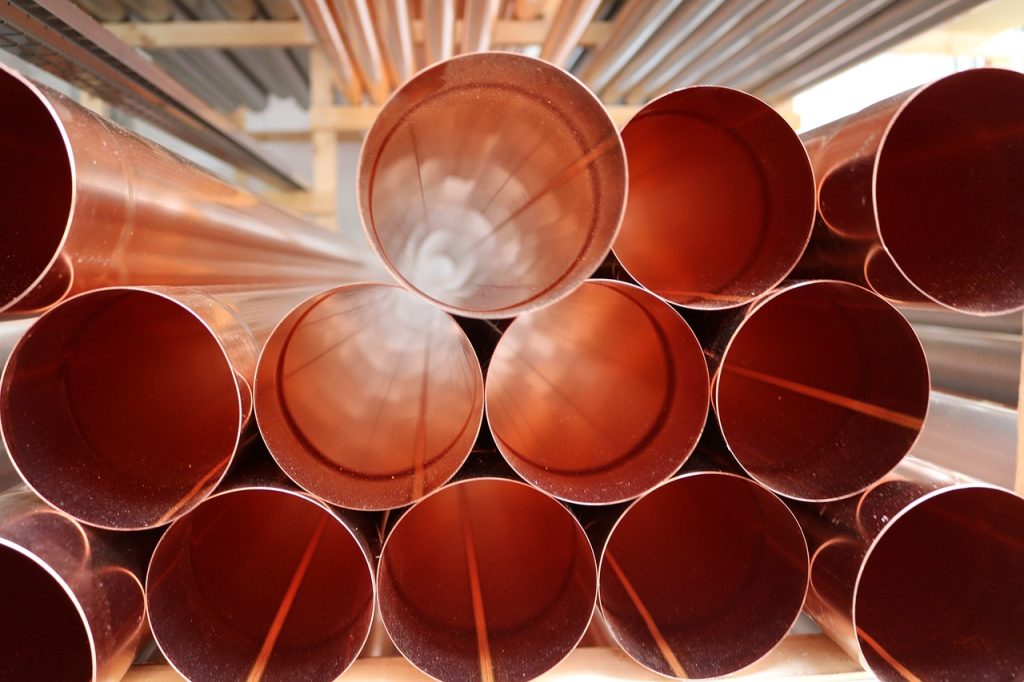Boost Your Craftsmanship with High-Performance Copper Products for Artisans
Boost Your Craftsmanship with High-Performance Copper Products for Artisans
Blog Article
Checking Out the Diverse Applications of Copper Products in Modern Industries
Copper items have actually developed themselves as vital parts across a myriad of contemporary sectors, mainly because of their amazing conductivity, malleability, and resistance to corrosion. From boosting the effectiveness of electrical systems to playing a crucial duty in renewable resource modern technologies, the convenience of copper is evident. Moreover, its recyclability placements it as a sustainable choice in manufacturing and electronics. As markets significantly prioritize innovation and sustainability, the diverse applications of copper require a closer assessment, especially concerning their prospective influence on future environmental methods and technical developments.
Electric Applications of Copper
Copper is a necessary product in the electrical industry, accounting for approximately 60% of the complete need for non-ferrous metals around the world - Copper Products. Its exceptional electrical conductivity, which is virtually two times that of light weight aluminum, makes it the favored choice for a wide variety of electric applications. From electrical wiring systems in property and industrial buildings to high-voltage power transmission lines, copper makes sure performance and dependability in electricity shipment
In addition to circuitry, copper is indispensable to the production of electric components such as motors, generators, and transformers. These components take advantage of copper's thermal conductivity and malleability, crucial for heat dissipation and reliable performance. Copper's resistance to rust improves the life-span and sturdiness of electric systems, making it an affordable option in the long term.
The growth of renewable power resources, such as solar and wind power, has actually better boosted the need for copper in electric applications. As markets change towards lasting power services, copper's function comes to be much more important. On the whole, the versatility and performance attributes of copper solidify its standing as a keystone product within the electrical sector, driving technology and efficiency throughout numerous applications.
Plumbing and Piping Solutions
In modern-day plumbing systems, the selection of materials substantially influences both performance and long life. Copper has emerged as a favored choice as a result of its special homes, including rust resistance and antimicrobial features. These attributes ensure that copper piping stays risk-free and resilient for moving potable water, a crucial factor to consider in property and business applications.
One of the key advantages of copper in pipes is its capability to stand up to high temperatures and stress, making it appropriate for a selection of applications, from warm water systems to heating and cooling down networks. Furthermore, copper's flexibility permits easier installment in complicated piping formats, minimizing the risk of leakages and failures.
One more noteworthy benefit is copper's lengthy life-span, commonly surpassing 50 years with correct upkeep. This longevity not just decreases replacement expenses yet likewise adds to sustainable techniques by reducing waste. Moreover, copper's recyclability straightens with modern ecological criteria, advertising a round economy within the pipes industry.
Copper in Renewable Energy
The flexibility of copper prolongs beyond pipes applications, playing click now an essential function in the renewable energy field. In solar panels, copper is made use of in photovoltaic or pv cells and circuitry, promoting effective power conversion and transmission.

Additionally, as the worldwide need for electrical vehicles (EVs) increases, copper's function in battery systems and charging facilities becomes even a lot more substantial. The product's ability to conduct electrical energy efficiently is essential to the performance of EV batteries, improving range and billing rate.
Copper's Role in Electronics
Electronic devices making counts heavily on copper's extraordinary homes, particularly its high electric conductivity and thermal efficiency. These features make copper an excellent option for a wide variety of digital elements, including ports, motherboard, and circuitry. The steel's ability to efficiently transmit electrical signals guarantees marginal power loss, which is vital in high-performance electronic tools.
In addition, copper's thermal conductivity plays a substantial duty in heat dissipation, securing delicate elements from overheating. This is especially crucial in modern-day electronics, where portable layouts bring about increased warm generation. Copper is additionally favored for its malleability and ductility, allowing it to be conveniently formed into complex styles that satisfy the needs of innovative electronic applications.
With the rise of customer electronics, telecoms, and electric vehicles, the demand for copper in the electronics industry continues to grow. Hence, copper stays a cornerstone material in the ever-expanding area of electronics.
Innovative Makes Use Of in Manufacturing

One remarkable application is in additive manufacturing, where copper-based materials are see employed in 3D printing processes. This permits the creation of intricate geometries and lightweight parts, especially in the aerospace and automotive markets. Furthermore, copper's thermal conductivity makes it an excellent option for heat exchangers, boosting efficiency in commercial air conditioning systems.
Additionally, the rise of wise manufacturing has actually seen the consolidation of copper in IoT devices, where its conductive capabilities support sophisticated noticing innovations. In the realm of renewable resource, copper is pivotal in the manufacturing of solar panels and wind turbines, assisting in much more reliable power conversion and distribution.
As industries make every effort for sustainability and advancement, copper's versatility and performance remain to place it as a crucial product, driving advancements in production and adding to the advancement of smarter, much more effective products.
Conclusion
The integral function of copper in sustainable power and its crucial feature in electronics emphasize its importance in progressing lasting techniques. Jointly, these applications show copper's you can check here essential contribution to technical progress and commercial performance in contemporary culture.
From improving the efficiency of electrical systems to playing a crucial duty in eco-friendly energy technologies, the versatility of copper is apparent. As markets significantly prioritize technology and sustainability, the varied applications of copper require a closer evaluation, specifically regarding their possible impact on future environmental methods and technical improvements.
The development of eco-friendly energy sources, such as solar and wind power, has better enhanced the demand for copper in electrical applications. In general, the flexibility and efficiency qualities of copper solidify its standing as a foundation material within the electric sector, driving technology and performance across numerous applications.
The versatility of copper extends past pipes applications, playing an essential duty in the sustainable energy sector.
Report this page